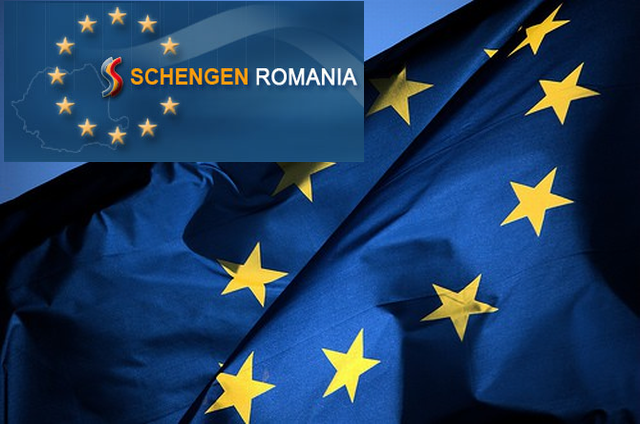Romania and Schengen accession
A recurrent issue in the past few years, Romanias Schengen accession was recently discussed at the annual meeting of the Romanian diplomats in Bucharest.

Corina Cristea, 16.09.2016, 14:43
A recurrent issue in the past few years, Romania’s Schengen accession was recently discussed at the annual meeting of the Romanian diplomats in Bucharest. On this occasion, Prime Minister Dacian Ciolos reminded the fact that Romania had been denied access to Europe’s border-free zone for more than five years, for political reasons. According to Ciolos, the realities we are facing at present make these political reasons seem completely obsolete. In trying to reach this goal, Romania made considerable effort and managed to meet the technical criteria requested for Schengen membership, a fact acknowledged by decision-makers in Brussels.
Envisaged for March 2011, the Schengen accession still remains a pending objective. Not even a spaced-out accession, an alternative considered later, involving air and naval borders, has not been implemented. The issue was also tackled during the talks Romanian president Klaus Iohannis held in Bucharest with his French counterpart Francois Hollande. The Romanian official reiterated the fact that Bucharest had for a long time been acting as a ‘de facto’ Schengen member and has handled the refugee crises very well. According to Iohannis, the Union could benefit Romania’s expertise in this field. For practical reasons, this cannot happen all of a sudden as the country has to take all the necessary steps in Brussels.
In his turn, the French President has said that Romania’s investment in airport traffic surveillance is significant and now the country boasts performing monitoring structures in this area. Therefore, the French official went on to say, talks in Brussels should focus on how the Romanian airports could bring their contribution to the Schengen area in terms of safety. Just like in the case of its EU accession in 2007, Romania is in tandem with Bulgaria in the Schengen accession process. The question is, however, if Romania will ever get the chance to hold separate negotiations on this matter. Iulian Chifu, a professor with the Centre for Conflict Prevention has a possible answer:
“The idea of decoupling could bring in a series of complications, but they are not impossible to solve, except for the case in which arguments in its favor are unconvincing. It’s easier for the European partners to stick to their working pattern than to accept major changes, so they need strong arguments in favor of holding separate negotiations with the two countries. And I believe we aren’t there yet. For the time being I believe we’ll be facing the same approach from our European partners.”
Bucharest receives significant support from some European leaders for its Schengen accession, but it also has to deal with opposition coming mostly from countries whose leaders need Parliament’s approval for important foreign policy decisions. One such country, and maybe the most vehement of all, is the Netherlands. Getting its approval is one of the touchstones in the process. The Dutch officials who are opposed to the accession say Bucharest has not met all initial criteria to become a EU member state. “Romania was not fully prepared at the time of accession. It was ready from many points of view, but not in the essential ones such as legislation, the judiciary and its functioning, the efficient and unbiased law enforcement and corruption in the state institutions”, the Dutch officials say, underlining the direct relation between Schengen and the observance of EU standards.
Furthermore, apart from the opposition showed mainly by Euro-skeptical parties, we are now speaking of an EU agenda of problems, which starts with extremely complicated issues, from the very existence of the EU, its transformation, breathing new life into the European project, European leadership elements which should be assumed, that is elements related to its existence, or its form of existence, development and flexibility, of re-launching the European Union. This is how Iulian Chifu describes the current context, in which Bucharest and Sofia hope to see a resolution to their Schengen accession request:
“It is an already busy agenda, which starts with the abovementioned issues, and continues with terrorism, migration, foreign fighters, insecurity, generally speaking, and with the emergence of xenophobic, populist, anti-system, Islamophobic parties in the whole of Europe, at the centre, in the lime-light of the political life. Consequently these two categories of problems, as we can call them, are so important, that other issues relating to enlargement, the reforms in the Western Balkans or integration issues, that have been left pending, such as Romania’s and Bulgaria’s Schengen accession, make a comeback on the agenda with difficulty, precisely because it is a very busy one. Yet again, Brexit rose sharply on the agenda, we are again speaking about the situation in Greece, whose performance hasn’t reached the expected level. These are truly important, unique problems. Let’s take, Brexit for example: the European Union itself has never before been faced with such a situation and does not know how to overcome it.”
In other words, it is a complicated context, with little chances of solving an issue like Schengen accession, which has been left pending for so long.






























